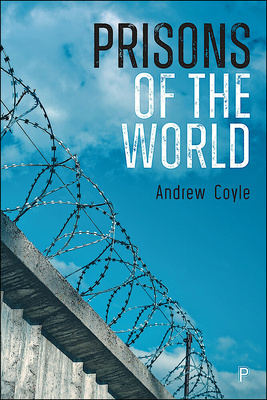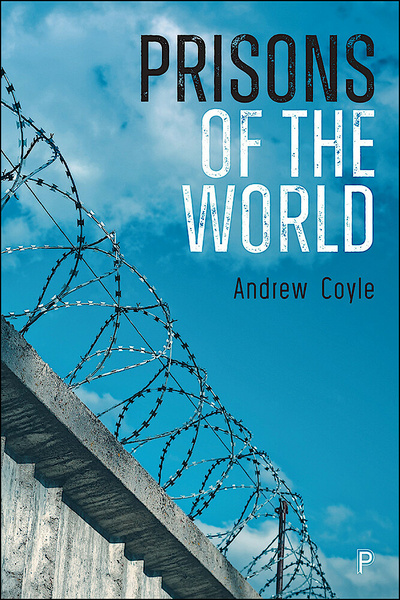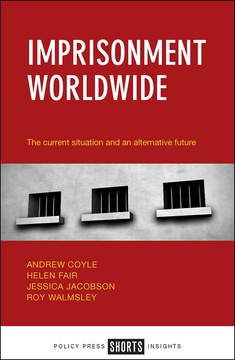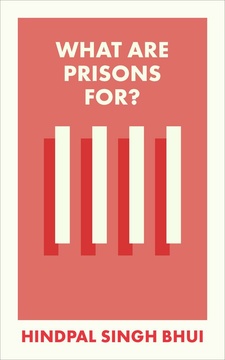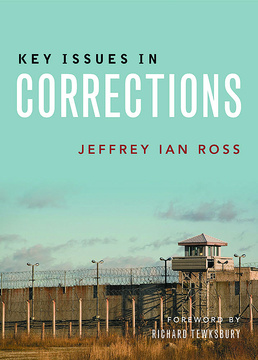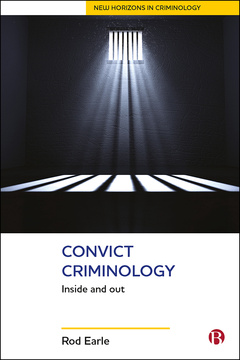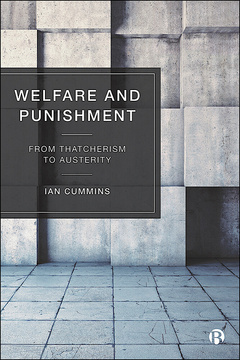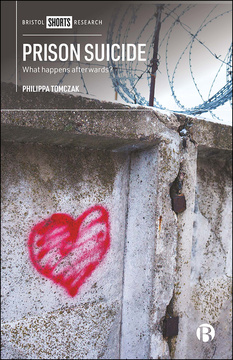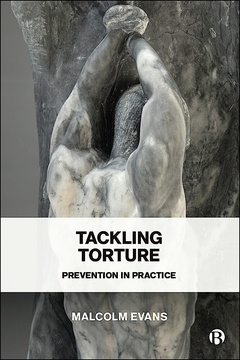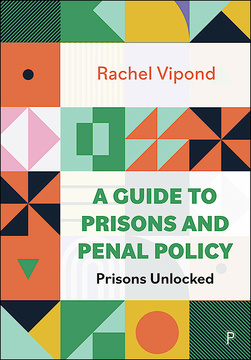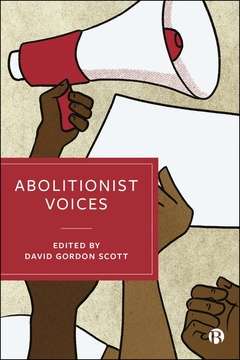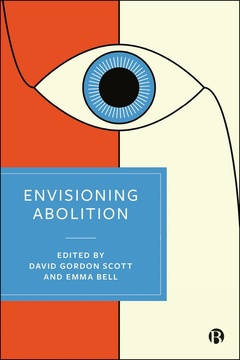Prisons of the World
By Andrew Coyle
Published
Nov 4, 2021Page count
246 pagesISBN
978-1447362470Dimensions
234 x 156 mmImprint
Policy PressPublished
Nov 4, 2021Page count
246 pagesISBN
978-1447362463Dimensions
234 x 156 mmImprint
Policy PressPublished
Nov 4, 2021Page count
246 pagesISBN
978-1447362487Dimensions
234 x 156 mmImprint
Policy PressPublished
Nov 4, 2021Page count
246 pagesISBN
978-1447362487Dimensions
234 x 156 mmImprint
Policy PressIn the media
'The prison crisis: Why we need proactive not reactive justice' on Transforming Society
'Douglas Ross needs to learn from the smart people on prisons and offending - Kenny MacAskill' in The Scotsman
On the blog:
A despairing attempt to relieve prison overcrowding
How do governments and societies use prison to respond to underlying and fundamental social, economic and political issues?
Using data on world imprisonment and numerous international examples from his personal experience, Coyle, a prison practitioner, academic and international expert, discusses the failings of prison around the world.
Acknowledging the influence of external agencies, such as the Committee for the Prevention of Torture, the Inter-American Court of Human Rights and court interventions in the use of solitary confinement, he offers some positive pointers for the future and how there might be a better distribution of resources between criminal justice and social justice by an application of the principles of Justice Reinvestment.
"Who better than an enlightened governor of prisons and professor in prison studies to discredit the belief that by locking up offenders we are reforming them? In a thoroughly readable first-hand account of imprisonment and criminal justice systems around the world Professor Coyle has conveyed a universally applicable message: 'Prisons can damage people'; they need a hard second look." Rani Dhavan Shankardass, Penal Reform and Justice Association (PRAJA) (India)
“An outstanding book, written by someone who has dedicated his life to international penal reform. It is unlike any other in its scope, humanity and clear political message.” Alison Liebling, University of Cambridge
“An unforgettable tour into the daily reality of prisons of the world, guided by a leading prison reformer. Professor Coyle offers both powerful arguments for a thorough re-evaluation of present prison policies, as well as suggestions for a better way." Tapio Lappi-Seppälä, University of Helsinki
“A chilling account of the realities of prison life around the world, based on the author’s unrivalled experience as one of the world’s leading proponents and practitioners of prison reform. This book demands attention and is a call to action.” Malcolm Evans, University of Bristol
“Andrew Coyle argues convincingly that taking a Human Development approach would lead to a dramatically reduced need for prison. A must read book for politicians, policy makers, advocates for justice, as well as those who think our prisons are serving us well. “ Eileen Baldry, University of New South Wales
"A tour-de-force that examines and combines two main elements of penology... of great importance to anyone who has an interest in 'real-life' prisons stories and experiences." Prison Service Journal
Andrew Coyle is Emeritus Professor of Prison Studies at the University of London. Following a distinguished career as a prison governor he became founding Director of the International Centre for Prison Studies in King’s College London and has spent many years advising national governments and international agencies on prison related issues in over 70 countries.
1. Introduction
2. The world of prisons
3. Prisons of the world
4. International Centre for Prison Studies
5. Women: the forgotten minority
6. The legacy of the Gulag
7. European Committee for the Prevention of Torture
8. Regional contrasts: Cambodia and Japan
9. Latin America: the iron fist or the New Model?
10. Barbados and the Inter-American Court of Human Rights
11. Sub-Saharan Africa: an expensive colonial legacy
12. The Jericho Monitoring Mission
13. Towards ‘a better way’







